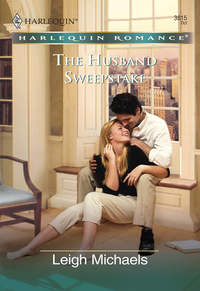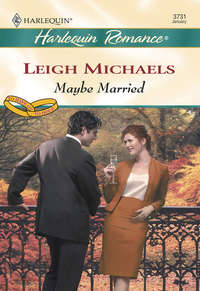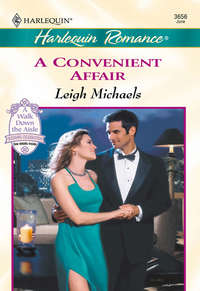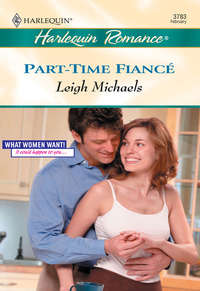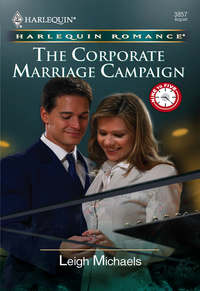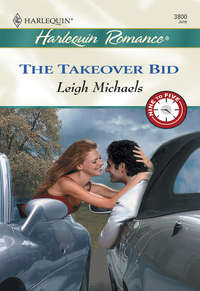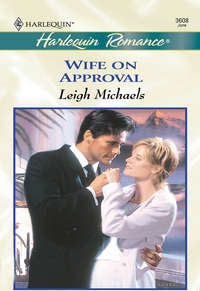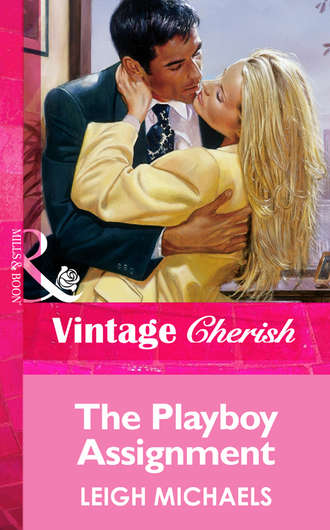
Полная версия
The Playboy Assignment
“I’m still determined to end up with this collection, Susannah. So just remember—if you value things high, you’ll have to raise the money to pay for them and explain to the board why they’re worth so much.”
“And if I value them low, I’ll end up looking like a fool.”
“Oh, I doubt that,” Pierce said easily. “Didn’t you see the way he was looking at you—sort of like a hungry wolf? I imagine, if you play your cards right, you’ll be able to keep Marcus Herrington from asking any questions at all.”
Tryad’s office, a converted brownstone not far from the green expanse of Lincoln Park, was quiet when Pierce dropped Susannah off early that evening. The same couldn’t be said of the rest of the neighborhood; since it was still mostly residential, the streets really came alive after work and school were over. And with the newly warmer weather to celebrate, kids were out in force.
Susannah dodged two roller skaters, paused to observe a cutthroat marbles tournament, finished teaching the two little girls next door a rope-skipping rhyme from her childhood, and stopped to study a hopscotch layout drawn in chalk on Tryad’s own front walk.
“You know,” she told the hopscotch artists, “this doesn’t make us look very professional, having big white-numbered squares drawn on the concrete leading straight to our offices.”
The girls looked stricken. “But we drew it as neatly as we could, Susannah,” one of them said.
Another chimed in, “And it’s only chalk, you know. It’ll wash off when it rains.”
The third added, “Maybe we could use colored chalk next time. It’d be prettier. Would that help?”
Susannah laughed, shook her head, and skirted the carefully drawn hopscotch field. The hopscotch craze would last only a few weeks; good neighbors—of any age—went on forever.
Almost automatically, she waved at the bay window of the house on the other side, the twin half of Tryad’s brownstone. She wasn’t surprised to see the white lace curtain flutter as if the corner had been hastily dropped. Mrs. Holcomb might be a recluse, but there wasn’t a move made in the neighborhood which escaped her.
What did startle Susannah was a glimpse of a hand behind the curtain, half raised in what might have been a hesitant wave. It was the first time Mrs. Holcomb had ever responded directly to any approach Susannah had made, and she was surprised at the surge of pleasure which swept over her.
Such a little thing a wave was, to cause such a reaction. And yet, for Mrs. Holcomb—who, so far as Susannah knew, had left her house only once in the three years since Tryad had moved in next door—it was a major overture of friendship.
Inside, the office was dim and quiet. A few rays of late sunshine found their way in through the stained-glass panel at the top of the main stairway, and security lights glowed here and there, lighting the way to the exits. The usual hum of copy machines and computers, and the muted chime of the telephones, had stilled into silence.
In the receptionist’s office, once the brownstone’s living room, Rita’s desk was neat, the blotter empty except for tomorrow’s to-do list. The in-basket marked with Susannah’s name was empty.
That was one minor miracle, Susannah thought. At least she was no farther behind than she’d been early this afternoon—it felt like a million years ago—when she’d left the office to attend Cyrus’s funeral...
Except, of course, for the job Pierce had dumped on her. Putting a value on an art collection was hardly a public relations job, but Susannah liked both art and research, and under other circumstances she might have found it an enjoyable challenge. If she had plenty of time, if she didn’t have a dozen pressing projects...
“Be honest,” she told herself. “If it didn’t involve Marc Herrington, you’d like the job a whole lot better.”
She climbed the stairs from the main level to her own office, at the back of the building. Her desk was in chaos, piled with papers and folders, just as it had been late this morning when the telephone calls started to come in. The project she’d been working on was due to be presented to the client tomorrow afternoon, but Susannah had no enthusiasm for facing the final details tonight. She’d come in early in the morning to finish.
She sailed her picture hat across the room toward the chintz-covered couch. The hat landed almost atop a calico cat, curled up nearly out of sight under the edge of a cushion. The cat opened one yellow eye and surveyed her warily. Susannah apologized and went on down the hall to Kit’s office, with its view of the street and the green expanse of Lincoln Park beyond.
The room was unnaturally neat, and Susannah thought the air smelled a bit stale after ten days of disuse. She wasn’t quite sure how that could happen, since the door had been open all the time. Perhaps it wasn’t staleness she felt, but loneliness.
She flung herself down on the chaise longue. She missed Kit. Missed being able to bounce ideas off her, to share frustrations and problems and triumphs.
“So what would Kitty do?” Her voice was loud in the silence of the office.
Stupid question, of course. Susannah would have bet money that Kit—straightforward, uncomplicated Kit—had never had a secret in her life.- She’d even fallen in love so transparently that Susannah and Alison had known it- almost before Kit herself had.
Susannah sighed.
Alison, the warmhearted and practical, wouldn’t be much more help. She’d be sympathetic, of course, but Alison—who had X-ray vision when it came to predicting the outcome of a business decision—would never comprehend how, even at the tender and inexperienced age of eighteen, Susannah could have been so foolish, so impractical, so shortsighted.
The truth was, if she tried for a month Susannah couldn’t explain to Alison what had happened eight years ago between her and Marc—because she wasn’t certain she understood it herself.
And neither Kit nor Alison would be able to fathom why they’d never heard about Marc Herrington before. If he had once been an important part of Susannah’s life, they should have known all the details long since. And if he hadn’t been significant, why was she making such a fuss about meeting him again now?
No, Susannah decided, her partners would be no help whatsoever. She was in this one on her own.
The last rays of sunlight were still filtering through the hallway, but Kit’s office had dimmed slowly and imperceptibly till Susannah was sitting in darkness.
Maybe she was overreacting, she told herself hopefully. Despite what Marc had said about being involved in the fate of Cyrus’s art collection, perhaps he really had no intention of doing anything of the sort. Maybe he’d just been pushing buttons, simply to see what her reaction would be. She wouldn’t put that sort of behavior past the new Marc.
Besides, the collection was big, and with her lack of experience, valuing it wouldn’t be the work of a few days. The task could stretch over a period of months, especially since she couldn’t just drop her other obligations. Surely Marc couldn’t rearrange his life to leave room for that.
Marc wasn’t the sort to be without a job. He’d never been too proud to work at whatever came to hand, and Susannah doubted that had changed. Besides, hadn’t Pierce said something about Cyrus’s funeral being delayed because Marc was on vacation? A vacation surely implied a job, and also an employer—who would not be likely to look kindly on a lengthy absence.
But what kind of a job? she found herself wondering.
Once, Marc had been a welder in a factory which built farm machinery. She supposed he might have made the jump into management, pushing numbers instead of steel. As a supervisor of sorts, perhaps; his hands—though not calloused—had been hard, as if he still did physical work. She hadn’t realized till just now that she’d noticed.
But then there was the fit of his pin-striped suit. Susannah still had trouble reconciling that suit with the Marc she remembered.... Not that it mattered, she told herself firmly. It was a waste of time to speculate about a man from a far distant past. A man who could never be important to her again.
She’d do her job, and Marc would go back to his regular life, wherever it was. And whatever—and whomever—it involved.
In the end, Susannah was glad her presentation was scheduled for Friday afternoon, because it forced her to push the entire problem of Cyrus’s paintings out of her mind. Instead, she spent the day concentrating on how to carry off a widespread recall of child safety seats without creating a national panic, and—less important but perhaps even more difficult—how to present her strategy to the manufacturer without causing an uproar which might cost Tryad future business.
By late afternoon, she’d managed both, and she celebrated by taking a cab back to Tryad’s offices. The work was far from over, but with all the plans approved and in place, the rest would be relatively easy.
She’d actually forgotten Cyrus and the paintings until she reached into her handbag to pay the cabbie and her fingertips touched a small square envelope. Rita had handed it to her as she went out the door for her presentation, saying it had just been delivered by a courier service. Susannah hadn’t even opened it, just shoved it into her bag. But she knew what was inside; through the heavy paper, embossed with Joseph Brewster’s name, she’d been able to feel the shape of a key.
The key to Cyrus Albrecht’s house, no doubt. Well, Monday would be soon enough to figure out how she was going to handle the problem of setting a fair value on Cyrus’s art collection and keep Pierce and the museum’s board happy.
The good news, she told herself, was that by Monday, Marc Herrington would have gone back to—wherever it was he’d come from. In fact, she thought he was probably gone already, or Joe Brewster wouldn’t have sent her a key. Not that she was planning to check; she deserved a peaceful weekend.
And the sudden drop in spirits she was suffering at the moment was an aftereffect of hard work and stress, of relief, of worry about how she was going to pull off this assignment. It had nothing to do, she was certain, with whether or not Marc Herrington. was still in Chicago.
She handed the fare over to the cabbie and reached for the door handle, only to feel it slide away under her hand as the door was opened from outside.
Another commuter, she thought, anxious to pick up a cab at rush hour. At least he could wait till I’m out!
But the odds were that anyone hailing a cab in this neighborhood was a client of Tryad’s, so she swallowed the tart comment she’d have liked to make and smiled instead. “I’m glad I happened along just when you needed the cab,” she said sweetly, and planted one foot on the curb.
“Perfect timing, in fact,” a rich baritone answered.
Susannah’s heel went out from under her and she tumbled back against the cab’s seat.
“Except that since you’re here, I don’t need a cab,” Marc went on reasonably. “May I offer you a hand, Susannah, since you seem to be having trouble getting out on your own?”
Today he looked more like the Marc she remembered—his jeans worn to pale blue and clinging to narrow hips, his pullover shirt emphasizing the breadth of his shoulders and the strength of his arms. Without apparent effort he almost lifted Susannah out of the cab, then stood with a hand still on her arm as if to steady her as he waved the driver away.
“What are you doing here?” As soon as the words were out, Susannah wanted to bite her tongue off; as opening gambits, that was about the worst she could think of.
“Don’t you think we have a few things to talk about?”
Pierce had said something yesterday about Marc looking at her like a hungry wolf. Susannah couldn’t see anything of the sort, herself. And she could detect nothing suggestive about his voice; his tone was perfectly level, and in fact he didn’t sound particularly interested. The combination made her feel a great deal more sure of herself, and she attacked. “I can’t imagine what we’d have to discuss. If you happen to be wondering what makes a public relations person qualified to appraise an art collection—”
“Oh, nothing so dull as that,” Marc said. “Besides, who am I to question your aptitude for the job? Growing up in such a privileged family, one of the Northbrook Millers—I imagine you absorbed more about art with your infant formula than I know now.”
A privileged family. For a moment, she wondered if there was the smallest hint of sarcasm in his tone. But Marc didn’t know. Marc couldn’t know...
He added, very gently, “I left a message for you with your receptionist, that I just wanted to talk over old times. She seemed to think you’d be disappointed to have missed me.”
Just my luck, Susannah thought, to have caught him on the way out. If I’d been five minutes later—just five minutes...
The white lace curtain on Mrs. Holcomb’s bay window next door didn’t just flutter as it usually did when anything of interest happened on the street outside. This time the lace was actually folded back, and Susannah didn’t think she was imagining the shadowy face which appeared behind the glass.
And if Mrs. Holcomb could see this very interesting conversation, so could Rita and Alison—if they happened to look out the window. And if Susannah walked into Tryad with Marc Herrington in tow, she might as well issue engraved invitations to a grilling, with herself on the barbecue spit.
She sighed. “There’s a little restaurant around the corner. How about a cup of coffee?”
“I thought you’d never ask. Shall I carry your briefcase?”
Susannah surrendered it, and pretended not to notice when Marc offered his arm. She spent the couple of minutes’ walk debating with herself. Had he always been a gentleman, or was that, too, something new? At eighteen, in the midst of a revolt against her parents’ values—a rebellion which had come a little later but no less violently than that of most teenagers—would she even have noticed such things as courtly manners?
The same waitress who had been working at breakfast hour on Monday brought their coffee, and dimpled when Marc thanked her.
Susannah stirred cream into her coffee and said, “Old times, you said. All right—you go first. What have you been up to for the last eight years? What are you working at these days?”
“I’m still in manufacturing.” Marc stretched out his hands—long fingers arched, each knuckle tensed. It was a gesture Susannah remembered seeing often, though the reason for it was less vivid in her mind. She vaguely recalled that he’d said something about the need to keep his hands flexible, for the work he did...
“Welding must be paying better these days,” she said crisply, “for you to afford to dress like that. The suit you were wearing at the funeral yesterday—”
“Did you like it? I bought it just for the occasion.”
“Is that why the funeral was delayed—to let you go shopping? Nice that you thought that highly of Cyrus.”
“I didn’t, particularly. I never met the man in my life.”
That much didn’t surprise her, but it chipped away at her original theory that Cyrus’s mysterious heir was also his son. To the best of Susannah’s recollection, Marc had had a perfectly serviceable set of parents... “I must admit I’d like to know how your mother met him.”
“I’ll have to ask her sometime. As long as we’re talking about families, how’s your daughter, Susannah?”
The question came at her like a curve ball, hanging just out of reach for an impossibly long time, taunting her. She wasn’t shocked, exactly; she’d been half expecting something of the sort. Why had he fixed on a girl? “I don’t have a daughter.”
“Really? It seemed a perfectly reasonable conclusion. A professional office probably wouldn’t provide hopscotch layouts on the front walk for clients’ children—at least, not the sort of firm yours obviously is. And since hopscotch is not only a little girl’s game, but is most fascinating to girls exactly the age yours would be...” -
“Very logical,” she admitted. “Very reasonable. And very wrong. The neighborhood girls like to play there. It’s the widest and flattest walk around.”
“A son, then?”
“Sorry to disappoint you.”
Marc was stirring his coffee. “Oh, I couldn’t be any more disillusioned with you than I was eight years ago. I must admit, however, I’d like to know what happened. I expected, after you told me that you hadn’t married after all, that you’d still be trying to convince the world your child was also mine, and I’d been too much of a bum to marry you. Naive of me, wasn’t it, to think that? Of course the Northbrook Millers would figure out a neater, easier way. What was it, Susannah? A convenient miscarriage?” The spoon didn’t stop moving in concentric circles as his gaze lifted to meet hers. “A very private adoption?”
“As you pointed out yourself, it’s none of your business.”
“Perhaps I should ask Pierce.”
“He doesn’t know.”
“In that case, it might be even more interesting to compare notes.”
“Be my guest. Is there anything else you wanted, Marc?”
“Oh, I could think of a few things.”
Susannah took that with a grain of salt. “Then I doubt I’ll see you again.”
“What makes you think that?” Only mild interest spiced his voice.
She shrugged, but the gesture turned out, despite her best efforts, to be more like a shiver. What was there about his gentle, even voice that scared her so? “I assume you’ll go back to your life. There must be things you can’t walk away from.”
“You mean things like the job, the mortgage, the wife, and the kids?”
Wife? Kids? But why shouldn’t he have married? Susannah could think of no good reason.
Her gaze went straight to his left hand, cupped easily on the plastic surface of the table. He wore no wedding ring, and there was no telltale pale band where one might have rested in the past....
Marc followed her gaze. His eyes narrowed, and he stretched out his hand toward her. “So you still have wedding rings on the brain. Sorry to disappoint you.”
“I see,” she said. “The machinery you work around makes a ring dangerous. Catch it wrong, and it could tear off your finger.”
“True,” he said. “Besides, it makes a handy excuse not to wear a ring. I think you’ve misunderstood, though. I’m not going back for a while. The wife—well, you know how these things go. A break sounds like a very good idea. And as for the kids—I don’t know why you’d assume that one can’t walk out on children, Susannah, considering your own record.”
She was too numb to be shocked.
“And as far as the job and the mortgage—well, it’s such a large inheritance, you see, that neither of those things matters much just now. Or at least it should be a tidy sum, if it’s properly looked after and not left to a bunch of vultures.”
“Meaning me?” Susannah managed to keep her voice steady, but it took enormous effort.
“Now why would you jump to the conclusion that I was talking about you?” Marc’s tone was soft, almost caressing. “Right now, it just makes sense to stick around and keep my eye on things—and that’s exactly what I’m going to do.”
CHAPTER THREE
DESPITE the effort she’d made to convince herself that Marc woutdn‘t—couldn’t—stay in Chicago, Susannah wasn’t really surprised. It was a sizable estate. One had only to walk into Cyrus’s house to realize that.
She could imagine the impact that house had had on Marc—the gleaming furniture, the solid walnut staircase, the art on the walls...even if he didn’t care for the subjects, he must have realized the paintings themselves were far above poster quality.
She could still remember his low whistle when he’d gotten his first glimpse of the Miller’s house, on that never-to-be-forgotten weekend when Susannah had brought him home on her Thanksgiving break from college to meet her family. If her parents’ house, spare and modern and all stainless steel and glass, had evoked that sort of response, Susannah could imagine the way he’d reacted to Cyrus’s exuberant Victorian.
And, once realizing the probable worth of his legacy, of course Marc would stay, watchful and protective, until everything was settled and the cash safely in his hands. He had no reason, after all, to trust Joe Brewster—or anyone else. And beside the magnitude of Cyrus’s estate, a welder’s income must look like peanuts, easily tossed aside.
“Of course,” she said coolly. “It only makes sense to protect oneself.”
Marc’s eyes narrowed. “Thank you for sharing your personal philosophy.”
Susannah opened her mouth to say that she hadn’t been talking about herself, and then decided the point wasn’t worth explaining. She wasn’t going to convince him with mere words. Not that she wanted to convince him; what did it matter what Marc thought of her?
“You’re quite right,” Marc went on thoughtfully. “And I’ll certainly keep your advice in mind as this process unfolds. I wonder how long it will take. A year, maybe.... Another cup of coffee?”
Susannah shook her head. The motion felt like forcing rusty machinery to move against its will; the tension in her muscles was the worst she’d ever felt. A year? Of course he was right; an estate the size of Cyrus’s would take forever to untangle.
On the other hand, perhaps she’d overestimated her part of the work. It would take time, of course, but much of it would be spent in libraries, not with the paintings themselves. She might not run into Marc much at all.
“Very well,” Marc said. He slid out of the booth.
Susannah made the mistake of looking up at him. He seemed incredibly tall, broad-shouldered, strong, as he stood there. He wasn’t frightening, exactly, but it was only sensible to be watchful. And she was certainly that; there seemed to be as much wariness circulating in her veins as blood.
“I’ll see you Monday, then,” he said. “Unless you’d prefer to spend the weekend with me?”
Susannah had turned, reaching for her handbag and briefcase. Her head snapped up once more; all her inner alarms shouted, Danger.
“Inventorying Cyrus’s pictures, of course,” he added smoothly. “Good heavens, Susannah, your eyes look like the Gulf of Mexico—the same shade of blue-green, and nearly as big. What did you think I meant?”
Susannah knew perfectly well what he’d meant. He’d meant for her to think that he was offering a weekend full of passion. And of course she’d fallen straight into the trap by reacting as she had. In fact, the only real question was what he’d truly been offering—an honest-to-goodness illicit encounter, or only a chance to make a fool of herself once more for his entertainment.
The old Marc wouldn’t have thought of either alternative, she knew. The young man she had known had been ardent—no doubt about that; she had yet to meet another man who could knock her socks off with a kiss as Marc had been able to. But he’d also been respectful, sometimes to the point of being quaint. He’d almost worshiped her; he would never have made that careless, offhand reference to sleeping together. And he would never have baited her, or embarrassed her.
The new Marc was cynical, sardonic, distrustful—and far more dangerous. The sooner Susannah stopped thinking of the man he’d once been and started handling him as she would a jar of nitroglycerine, the better off she’d be.
Still, she spent most of the weekend turning the whole thing over in her head—grooming the acid barbs she wished she’d thought of earlier and fretting about what Monday would bring. Why had she committed herself to showing up at Cyrus’s house on Monday, anyway?
Конец ознакомительного фрагмента.
Текст предоставлен ООО «ЛитРес».
Прочитайте эту книгу целиком, купив полную легальную версию на ЛитРес.
Безопасно оплатить книгу можно банковской картой Visa, MasterCard, Maestro, со счета мобильного телефона, с платежного терминала, в салоне МТС или Связной, через PayPal, WebMoney, Яндекс.Деньги, QIWI Кошелек, бонусными картами или другим удобным Вам способом.


